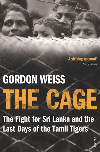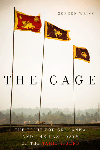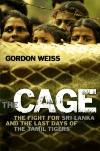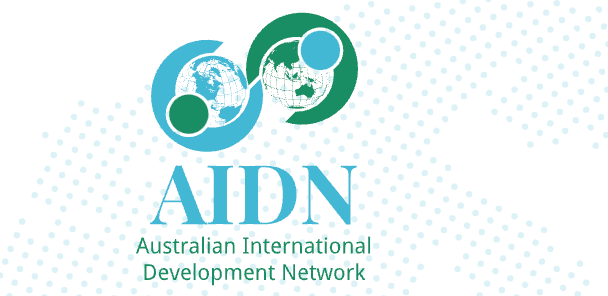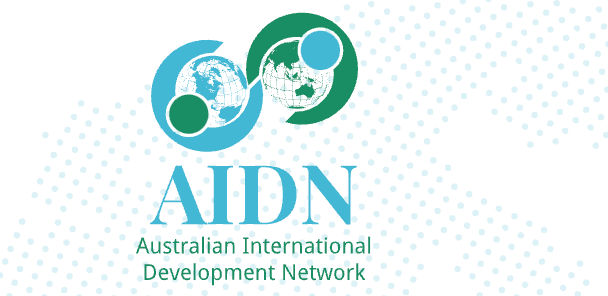
Gordon Karel Weiss

Bio brief
I worked lengthy stints with the UN, the OSCE, and compatible governments for almost three decades, focused on multi-faceted peacekeeping, political, and humanitarian crises in some of the world’s most fragile and conflicted zones. I was boots-on-the-ground in Africa, India, Af/Pak and former Soviet Central Asia, the Western Balkans, Eastern Europe, the Caribbean, the Caucasus, South-East Asia, and the Middle East, including first response operations. I was a Visiting Scholar at the University of Sydney's Department of Political Science, and an Adjunct Professor at Griffith University's Department of Government.
Since June 2022 I lead the the Planet Humana Fund, a new private philanthropic organisation based out of Providence, Rhode Island, and Sydney. Planet Humana supports individuals and groups doing high-impact and innovative frontline work to build and protect their own societies throughout the globe. We currently work in Kenya, Argentina, Sri Lanka, and East Timor, with the bulk of our work in Ukraine.
I've been published in the New York Times, Foreign Policy, the Washington Post, The Australian, the Sydney Morning Herald, Salon, and various institutes, and have been interviewed by numerous Australian, U.S., European, and Asian news outlets, including the BBC, CNN, Sky News, and NPR. As a teenager I lived and motorbiked through India, Nepal and Japan, and between UN assignments I built and ran my own jazz/burlesque bar; co-founded a war crimes investigative body; started a successful business catering to the medical industry; and wrote a number of (unpublished) books.
Personal
I'm the father of a beautiful daughter, and the son of an immigrant who became an early female judge in Australia, and a Czech refugee whose extensive family was killed during the Holocaust. My primary home is Australia, to which the highland Scots part of my family immigrated in the 1820s as early pioneers in Tasmania and the Mildurra district on the Murray River.

Critical praise for my book -
The Cage: The Fight for Sri Lanka and the Last Days of the Tamil Tigers
THE WALL STREET JOURNAL – “This powerful book is a haunting reminder of the price countries in the developing world pay for the flawed choices of their founders.”
THE ECONOMIST – “An excellent account of how that victory was won, and of the price paid for peace.”
NOAM CHOMSKY – “This shattering… tale of savagery and suffering not only lifts the veil that conceals one of the most awful tragedies of the current era, but also helps us understand what should be done… before other such horrors spiral out of control.”
THE SPECTATOR (Best Summer Reading 2011) – “A parable of the World, the Flesh, and the Devil… the thin line that separates civilized societies from those that sink into collective madness governed by hatred.”
FOREIGN AFFAIRS (Book of the Day, April 2016) – “Weiss provides harrowing details, as well as insight.”
THE SUNDAY TIMES (Jon Swain) – “A striking account of the ruthless terror wreaked by both sides on the innocent civilians trapped in a pocket of land… [Weiss’s] book is a powerful indictment.”
THE INTERCEPT (Best Summer Reading List 2015) – “Gripping... Deeply informed, humane and compassionate… a beautifully articulated insight into the human experience.”
THE LOS ANGELES REVIEW OF BOOKS – “A potent analysis.”
THE SCOTSMAN – “Painstakingly researched and referenced study... he lines up his targets carefully, then picks them off with surgical precision.”
BBC (Nick Bryant) – “Some of the best coverage of Sri Lanka.”
THE GUARDIAN (the BBC's George Alagiah when asked what book he wished he'd written) – “The Cage by Gordon Weiss.”
THE AUSTRALIAN – “Essential reading… Its value lies in its dispassionate analysis of the cause of Sri Lanka’s tragic civil war and how such conflicts can be avoided.”
THE LITERARY REVIEW (Jason Bourke) – "One of the strengths of this book is that, unlike much of the reporting at the time of the crisis in 2009, it unpicks the roots of the problem."
THE ISLAND (Sri Lanka) – “A knockout blow. No wonder the government had it taken off the shelves; it does not want you to read it.”
JON LEE ANDERSON (New Yorker staff writer) – “A tightly-written and clear-eyed narrative about one of the most disturbing human dramas of recent years… a riveting cautionary tale about the consequences of unchecked political power in a country at war. A must-read.”
GARETH EVANS (fmr Australian Foreign Minister) – “A compellingly readable account of one of the very worst atrocity stories this century… Weiss is scrupulously even-handed… a timely prod to the world’s collective conscience.”
ROMA TEARNE (author) – “A fair and brilliantly written tour de force of this long forgotten war.”
GOODREADS – "Absolutely enthralling and brilliantly written..."
CHARLES PETRIE (Diplomat and author of the UN’s ‘Petrie Report’ inquiry) – “The first thing I was handed was a copy of ‘The Cage.’ Weiss’s… account should serve as a guidepost for decision-makers and scholars of international affairs everywhere. A book can change the world.”
ASIAN ETHNOLOGY - "Raises... the question of how witnesses should respond to alleged war crimes, human rights violations, and the breakdown of the rule of law. A sweeping discussion."
THE SYDNEY MORNING HERALD - "A courageous document that holds to account the brutality of a rogue state that is all too often seen as simply a beautiful tourist destination."
GROUNDVIEWS – "The Cage is a page-turner. Gordon’s prose is lucid and compelling. This is not a book you can easily put down once picked up. There are around 60 pages of notes and background reference material – Weiss has clearly done his homework."
Recent media
January 2025
Listen to this Califormia-based "Zoomers to Boomers" Podcast where Gordon Weiss discusses with David Bitterman how motivated funders can have a role in shaping the world we are bequeathing to our children through a High risk; high trust; high return philanthropy.
November 2024
While security forces stayed their guns and truncheons in those weeks, protesters forced the resignation of then Prime Minister Mahinda Rajapaksa. His tough-guy brother Gotabaya, vanquisher of the Tamil Tiger rebel army in 2009, and later president, soon abandoned post and jetted out of the country like a Bond-baddie, leaving a froth of bad foreign debts in his wake for successors to clean up.
November 2024
I’m in a basement in Kyiv, having just returned from the frontline eastern city of Kharkiv. Psychologists, neuro-scientists, battlefront combat medics, diplomats, army commanders, and chief medical officers attached to combat formations have gathered to consider a phenomenon which not only menaces Ukraine’s survival as a functional democracy, but also her capacity to recover and rebuild when peace finally returns to this battered land. This is the phenomenon of what was once called “shell shock” which is produced by the sheer scale of Russian firepower.
October 2024
What has been surprising for many in the Western generation, which came of age at the end of the Cold war, is the resurgence of totalitarianism as a political force in great power politics, and as a political instinct now playing out in the echelons of elite Western universities, and in the streets of liberal democratic countries whose systems make open protest possible. It comes from the Left and the Right.
May 2024
A few days after Russia invaded Ukraine in February 2022, I arrived on the border of Ukraine and Poland along with my former UN colleagues to pitch in with assistance. Hundreds of thousands of Ukrainians were streaming across the border, guided into Poland with great sensitivity by the usually brusque Polish border guards. The long lines of Ukrainian civilians, wrapped up against the freeze and clutching their household pets, were largely hushed, too exhausted to do more than quietly talk among themselves as they waited patiently to pass the border gates.
May 2024
The European spring is breaking, and Kyiv is abundant with flowering chestnut trees. The perfumed thaw, however, is blighted by the recent squandered lives of Ukrainian troops 500 kilometres to the east. This resolute army has waited vainly for the armaments needed to match the Russian winter onslaught. These weapons, now en route after months of crippling delay through US Congressional bickering and European dithering rebuked by French President Emmanuel Macron, might have saved many Ukrainian lives.
September 2020
Watching mob violence in the streets of America, I recalled an encounter in Kosovo in 1999. Driving through the country one day in a UN vehicle, I stopped at the house of a man who, some months before, had been dragged from his house by Serbian paramilitaries and made to kneel on the dusty road and was poised for execution in front of his seven daughters.
October 2020
‘When small men begin to cast big shadows’, wrote the Chinese intellectual Lin Yutang, ‘it means the sun is about to set.’ It is a dictum that, like many, functions neatly in reverse. When small countries stand up to the great, it might well be a sign of a new day.
November 2020
A billboard firm cleverly lures clients with a simple slogan on an otherwise blank canvas—unsee this.
Its genius rests on a human trait: we can’t unsee, unhear or unsmell anything. Our senses are primordial devices programmed to extract millions of data points every second, most of it, at some level, novel. Yet the brain can sort and analyse only around 50 points per second in order to assess a possible response.
Essays
Thoughts, musings, and ruminations.
November 10, 2024 · people,social-political,historyRead more...If you are an avid support of Ukraine's effort to defeat Putin, as I am, this is a very important...More Posts
© 2018


